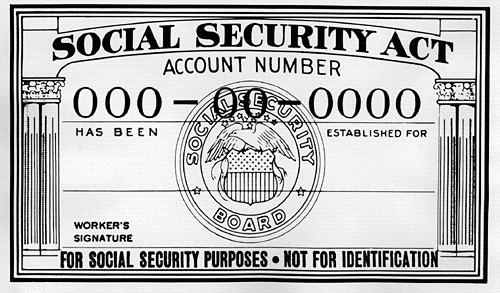Identity theft isn’t just a problem for the living. Criminals have begun stealing the identity of the deceased and using the information to open bank accounts, create online accounts, file tax returns, etc. According to a fraud prevention firm, ID Analytics, nearly 2,200 names of recently deceased people are intentionally stolen per day. It’s called “ghosting.” A criminal’s motives for ghosting are more complex than that of the average identity thief. The majority of ghosters are sincerely interested in obtaining a new identity for long term use. Most ghosters are running from something like a criminal record or severe debt.
Table of Contents
How to Protect a Lost Loved One’s Identity
The recently deceased are particularly vulnerable to identity theft because their family members are mourning. They are not paying attention to their family member’s sensitive personal information. If you have ever lost a loved one, you understand that this is the last thing on your mind.
This is why we’ve created a simple checklist of things to do to help prevent identity theft after death.
-
Notify Credit Reporting Agencies
It takes 3 to 6 months for an official death certificate to be sent out to credit reporting agencies after an individual passes away. This is done automatically, and some important organizations are commonly overlooked. It’s a good idea to personally notify the major credit-reporting bureaus of your loved one’s passing.
Here are the phone numbers of the most common agencies:
Experian – 888-397-3742
Equifax – 888-766-0008
TransUnion – 800-680-7289
You can ask them to place a “deceased alert” on the credit report which will prevent a ghoster from using the credit of your loved one.
-
Notify Financial Institutions
After your loved one’s death, notify all financial organizations they’ve dealt with. Include all banks, insurance companies, credit card companies, stock brokers, mortgage companies, loan/lien holders, etc.
This is a critical step because it can affect the surviving family. For example: Most mortgages have both a husband’s and wife’s name on the documents, meaning the surviving spouse can have their credit damaged as well.
-
Notify Social Security
Many ghosters purchase social security cards from the black market for as little as $10. Protecting your loved one’s Social Security Number is one of the easiest steps. You simply need to report their passing to the Social Security Administration by calling 800-772-1213. This will make it impossible for your loved ones social security number to be sold.
-
Notify the department of motor vehicles
Contacting the department of motor vehicles and canceling the deceased’s driver’s license prevents the ghoster from obtaining duplicates.
-
Give minimal details to the public
While it’s natural to want to share information about loved one in an obituary, family members should be aware that some identity thieves scan the newspaper for potential victims. A good rule of thumb is to leave out any information that someone would need to apply for a credit card, insurance policy, or to open a bank account.
-
Secure personal Documents
While it’s more difficult for ghosters to obtain the deceased printed records, it’s also one of the most difficult to resolve. As soon as possible, you should gather all of the deceased’s personal documents and secure them to avoid any problems in the future.
-
Look for suspicious activity
We understand that losing someone is a traumatic time that you probably do not want to revisit. However, a few weeks after your loved one’s death, it is important that you check their credit report at annualcreditreport.com to see if there’s been any suspicious activity. For good measure you can check again several months later by going to the same site and requesting a free report from a different credit-reporting bureau.
The consequences of ghosting are unlikely to be serious for the surviving family member. However, if a loved one’s identity is stolen after they pass away, you could face calls from bill collectors and have to deal with a lot of paperwork. As anyone who has lost a loved one knows, the responsibility to love and respect that person continues long past their death. This is one simple way you can make sure their memory is honored.
Photo courtesy of the Social Security Administration
